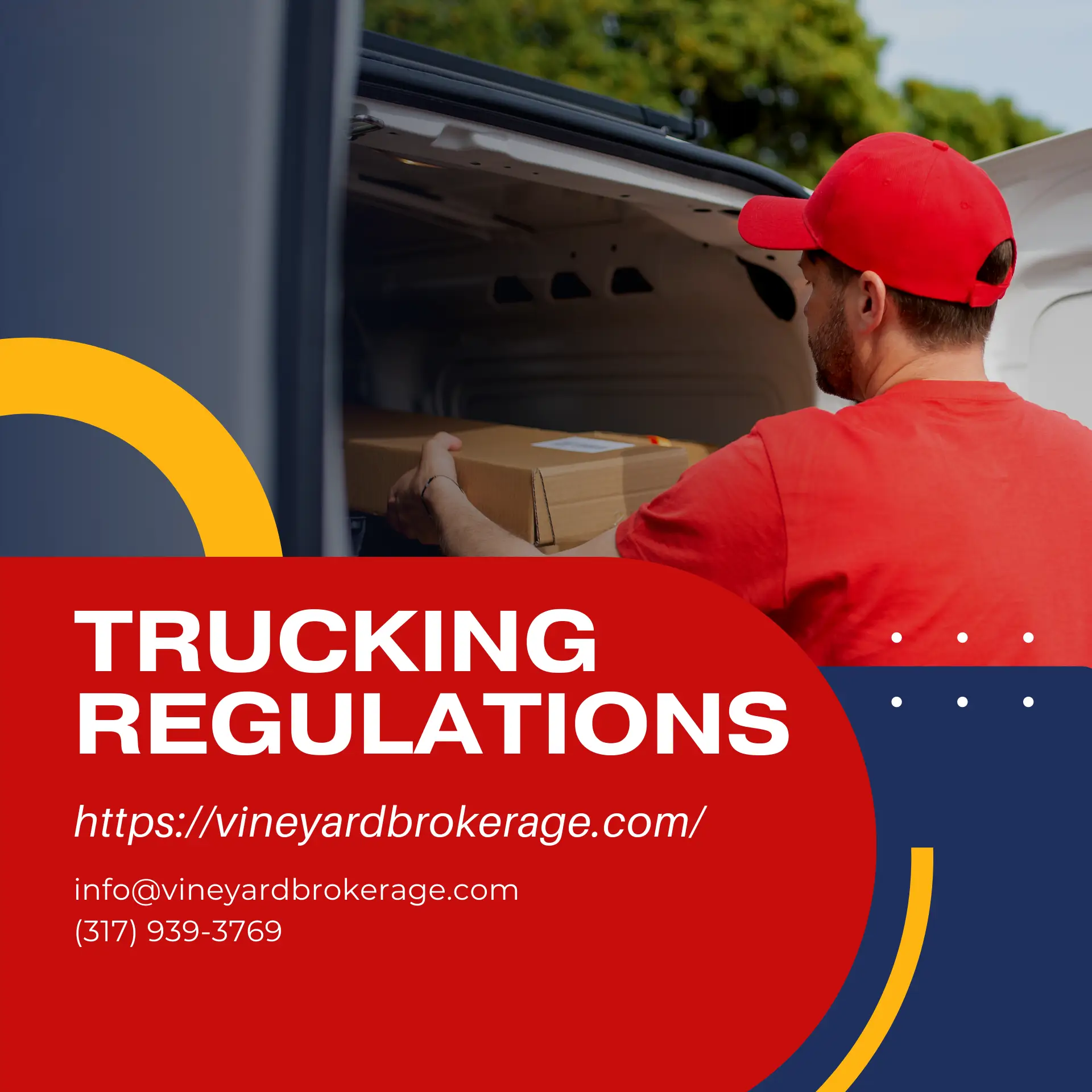12 Trucking Regulations You Should be Aware of

There are 12 important truck regulations every carrier and driver needs to know. Let us tell you about them, so that you can check that the freight company you are hiring for transportation has all the necessary documents and will not face any hiccups and your shipment gets delayed without any fault of yours.
DOT certification
The DOT requires that commercial trucks be registered, although more than half of the applications are incomplete. Make sure your registration is accurate right now.
Motor Transporter—Operating Organization
Operating authorities permit owners, operators, or drivers of transportation companies to legally conduct business across state borders. It must be renewed every two years.
Unified Carrier Registration (UCR)
Owner-operators and carriers that wish to cross state boundaries must register and pay an annual fee. The base state, usually where your offices are located, is where you will make the payment.
Qualification of the driver
Many states need yearly renewal evidence of a driver’s eligibility. These criteria might include a minimum age (often 21), a current commercial driver’s license, verification of a road test, or other conditions, depending on the state. To find out what paperwork is needed, contact your state.
BOC3- Blanket of Coverage
BOC3 identifies processing agents who can process legal documents on your behalf. You can choose a registered attorney in any state, but it’s usually easier to choose a general attorney who can represent you in all states.
The Drug and Alcohol Consortium
To meet the DOT’s drug and alcohol testing requirements, many transportation companies have chosen to participate in random DOT drug testing consortium programs. Whether you are part of a syndicate or run your own drug and alcohol tests, you must submit proof of compliance to the DOT every 12 months.
DOT Physical Examination (P)
A driver must undergo a physical examination before driving, after which he must undergo a physical examination every two years. Individuals with certain medical conditions such as heart disease may need to be checked annually, but people with problems such as extremely high blood pressure should wait 3 months until the condition is controlled. You may need to screen every time. Always keep your medical examination certificate in your truck.
DOT Number
Generally, a DOT number is required if you are engaged in interstate (interstate) trade and operate vehicles weighing more than 10,000 pounds. Some states also require a truck driver operating exclusively in that state to have a DOT number.
Periodic Updating
Every two years, DOT registration must be updated for motor carriers and several other groups. Your DOT number could be deactivated as well as other consequences if you don’t comply.
Revisions to the Drug and Alcohol Clearinghouse
In 2020, the federal Drug and Alcohol Clearinghouse went into force, and updates might be made in 2022. Employer drug or alcohol offenses must be reported by trucking businesses, and it must be confirmed that the employee met all conditions for returning to work after the violation. The system’s efficiency and streamlining are the main goals of the proposed improvements, but the fundamentals won’t likely change.
GHG and fuel efficiency standards for heavy-duty vehicles
In 2021, new fuel efficiency regulations go into force. For pickup vehicles with model years 2021, 2024, and 2027, these will gradually go into effect. It’s important to make sure that your 2022 car meets the latest rules for trucks from the year 2021.
Revised driver training standards for novices
The FMCA’s expanded driver training rules will now start in 2022 instead of 2020 as originally planned. A thorough training program consists of a total of 31 course subjects and 19 competencies that applicants for a Class A or Class B driver’s license must complete. Along with certification, teachers must be registered on the FMCSA’s training provider registry (TPR).
Vineyard Brokerage
Vineyard Brokerage develops cutting-edge supply chain solutions covering every stage of the process, all based on your own company’s requirements. Through the deployment of all-encompassing technology for enhanced visibility and efficiency, as well as the use of solid third-party partnerships, businesses are able to have access to the appropriate assistance and end-to-end supply chain solutions at precisely the correct times.
You’ll also have access to unique, new ideas with long-term potential, thanks to a single point of contact, a wide range of assets that can be used with technology, and strong partnerships with third parties.
We take care that the freight company we employ for your shipment has all its documentation in place so that your shipment gets delivered on time and without any delay.
With you every step of the mile!

